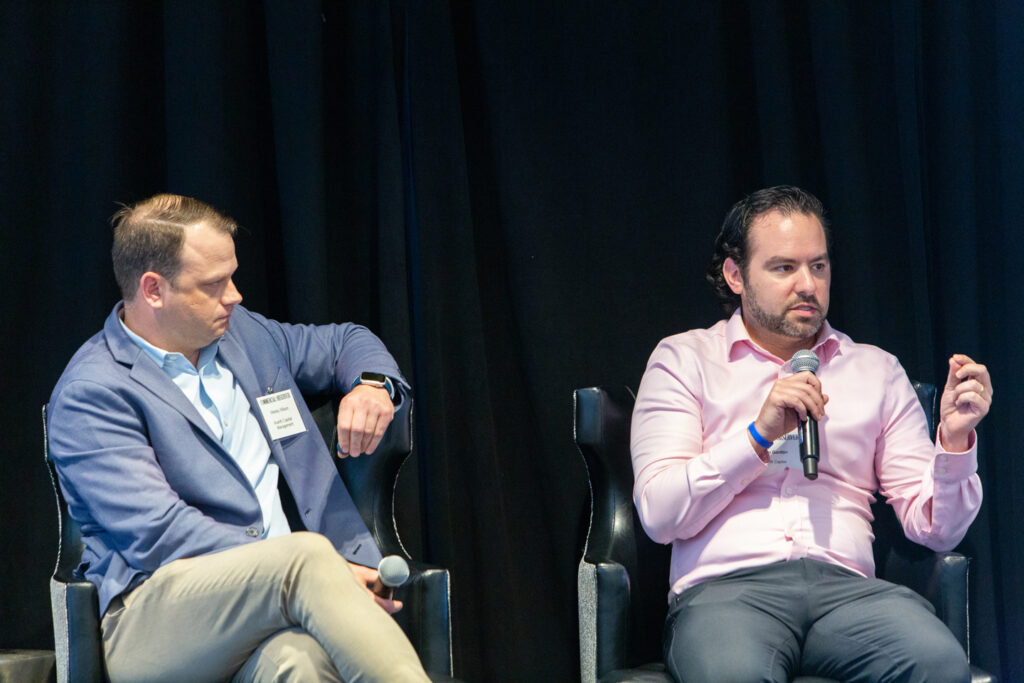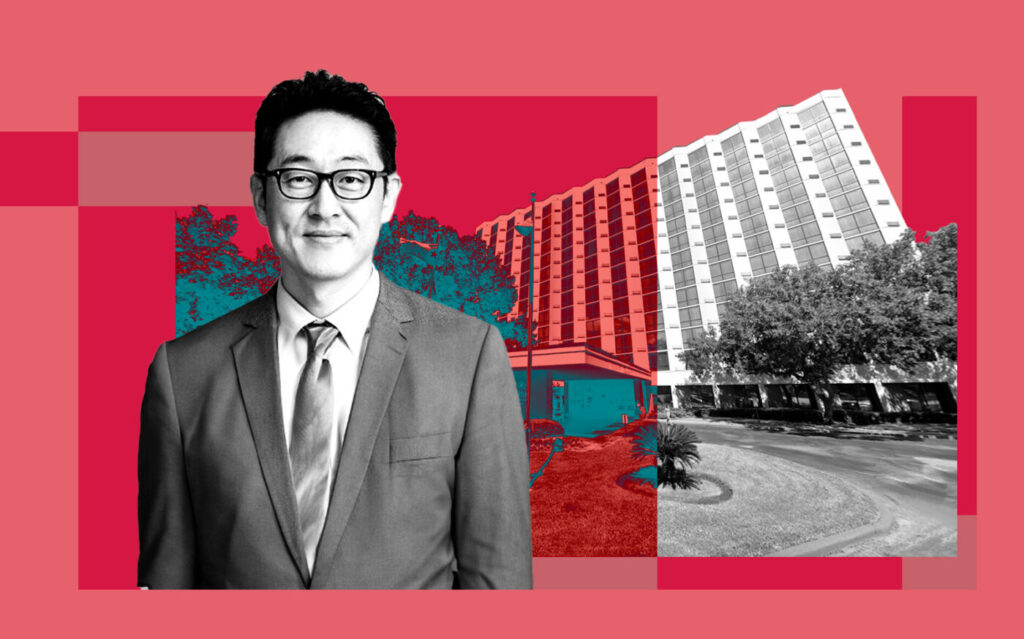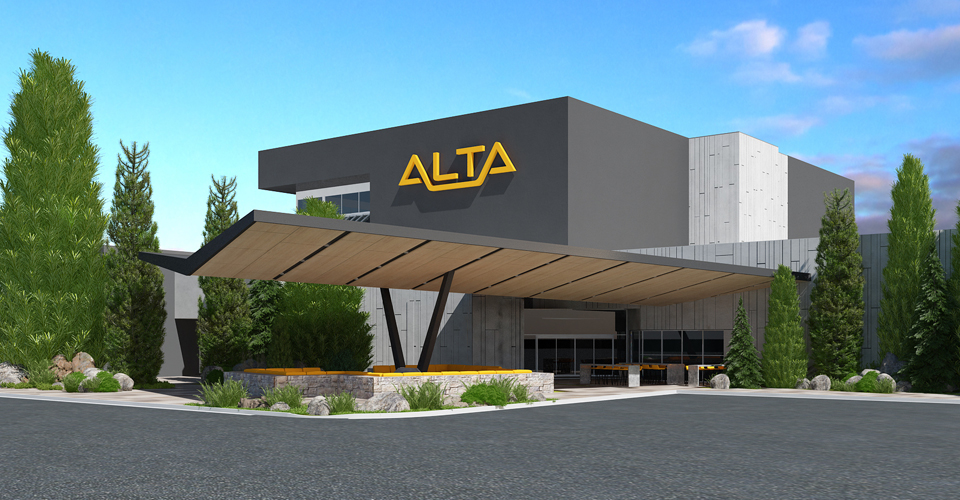Commercial Observer assembled several notable names in Dallas for their takes on development, lending and leasing
BY GREG CORNFIELD APRIL 23, 2024 12:55 PM
It’s not a typical cycle. That much was agreed upon at Commercial Observer’s real estate investment forum on April 18 at the Santander Tower in Downtown Dallas.
Katy Carmical, partner with Hunton Andrews Kurth, moderated a panel discussion on the changing investor landscape in the U.S., and talked about what it’s like to work in today’s market. Tony Fineman, senior managing director and head of originations at Acore Capital, said there is far more capital ready to be deployed than there are deals looking for financing.
“We’re flush with capital and want to put it out,” he said. “Sometimes, where we want to put it and where the borrower wants it is not the same. But, we’re a little bit agnostic in that we just need trades to happen.
“For two years, I’ve been saying the issue in the lending business is we need to further acquiesce to the fact that interest rates are where they are,” Fineman added. “Interest rates impact value, and when a buyer and seller — or a borrower and lender — agree on what the value is, then a trade can happen.”
Sondra Wenger, senior managing director and head
of commercial real estate for the Americas at CBRE Investment Management, said it’s important to be able to pivot and respond to market trends and research. She pointed to work from home trends resulting in far fewer trips to central business districts for errands or lunch. Instead, people are visiting neighborhood retail centers at greater rates than before the pandemic.
“If you look at that from a high level, there is limited supply, they have high occupancies, and there’s a lot of under-market rents making it a really attractive investment today,” Wenger said of neighborhood retail properties. “Because retail was in the doghouse for the last nine to 10 years, there wasn’t a lot of construction getting done. So the supply did not keep up with the demand. It didn’t even keep up with population growth.”
She said, despite negative sentiment, CBRE has seen the highest occupancy levels in retail in the last 24 years, and retailers are seeing higher consumer spending per square foot when compared to recent averages.
“We expect that trend to continue on for the next three to four years,” she said. “Because rents were not moving up due to people’s fear of retail, there’s a real mark to market growth in your rental rate. … It’s also unique in that you can get positive leverage today on most of your retail deals.”
Mark Roberts, managing director of research at Crow Holdings Capital and also at the SMU Cox Folsom Institute for Real Estate, said while it’s not a typical cycle, there is a lot to be optimistic about. He said investors are responding to the state of money markets by reducing exposure in the stock market and targeting assets with good yield.
When it comes to U.S. office real estate, Wenger said the market tells a bifurcating story between top-shelf space and everything else. “It’s a very different animal,” she said. “There is a much wider spread in that bid-ask for the have nots versus the haves.”
She said the haves in the office market are actually seeing rent growth and some of the lower vacancies. “We’re seeing a huge trend where tenants are now using this as an opportunity to say, ‘We want to get into some good space where we can really pull our tenant pool and our workforce in,’” Wenger said.
Roberts said it’s a tenants’ market, which means it’s going to take a lot more capital to develop leading office amenities. “Part of the challenge is that not all landlords are well capitalized to do it,” he said.
Wenger added that funding is the first thing office tenants ask about when touring properties. “It’s not ‘Where’s the metro line?’ or ‘What amenities does this building have?’” she said. “We’re now getting asked, ‘What is the capital stack of this building?’ because it’s very important for tenants to know if they’re going to make a commitment that it’s not going to turn into a zombie building.”
Opinions from the panel about multifamily investment were varied. They agreed, though, that multifamily operation fundamentals remain strong.
“Most of the properties you see that are distressed aren’t distressed because the occupancy is not there,” Jay Porterfield, executive director at PGIM Real Estate and another panelist, said. “They’re distressed because of the financial engineering that went into the capital stack. My living is made around apartments, so maybe I’m biased, but I continue to be bullish on apartments. But you have to pay the right price.”
Wenger said CBRE was expecting distress in the multifamily market because of the volume of deals completed in 2021 and 2022 at very low cap rates. “But the reality is, there just isn’t yet because it is a long-term investment asset class,” she said.
Fineman cautioned that the nation isn’t out of the woods when it comes to multifamily distress.
“If the [U.S. 10-year treasury] stays at 3.5 to 4 percent, distress in multifamily is coming up,” he said. “There will be capital that’s dejected by the current owner, or capital dejected by the next owner. I think there’s tremendous opportunity and we’re very bullish on putting money out in the multifamily market. But to say we’re past seeing distress in multifamily is not correct.”
Colin Fitzgibbons, president at Hunt Realty Investments, said he’s optimistic about multifamily, and the company is working on affordable and workforce housing projects. He pointed to Downtown Dallas’ deficit in affordable housing.
“It is a problem, and it’s going to affect the overall growth if we don’t figure out a way to address it,” he said. “So I’m someone who spends a lot of time trying to wrap my mind around how the numbers work, but we’re very bullish on the long-term prospects.”
Most of the panel said places like Dallas are prime targets for investment thanks to favorable business and political environments, and to persistent in-migration. “The key thing to us as we look at other markets in this country where the policies of the government are anti-growth, anti-investment; look at Dallas and Texas: People are still moving here. There’s still migration into this city,” Fineman said. “The truth is these markets are resilient. The growth is fostered here. So we’re really bullish on lending here. Wegner said CBRE’s recent investor intention survey showed Dallas ranked as the top market in the nation in terms of places that companies want to invest in more.
Carmical wrapped the panel by asking for bold pre- dictions for 2024. “I don’t think the Fed moves [interest rates], and I think the treasury stays where it is right now,” Porterfield said. Fineman predicted one rate cut this year “right before the election.”
Roberts’ forecast shows a lower chance of cap rates rising then falling over the next couple of years. Wenger said there will be an undersupply in “brand-new responsive office space in 2025.” And Fitzgibbons predicted “more new office development than you think.”
In a separate panel, Michael Cohen, founder of Brighton Capital Advisors and an expert in CMBS and CLO financing, discussed his firm’s business of usher- ing borrowers through the new post-pandemic era of loan servicing and distress on the capital markets side of commercial real estate.
“CMBS is effectively going to a pawn shop where it’s stacked against you,” Cohen said. “The headlines are true: Borrowers do not have power with these special servicers. Once you get into special servicing, you’re going to start to incur fees. And you’re under their control.”
He anticipates more distress on the horizon, particularly in the multifamily sector, which will require a lot more restructuring, extensions and other solutions. “There’s no dramatic interest rate change that’s going to come that’s going to save everybody,” he said.

CO’s Dallas investment forum had started with a keynote by Christopher Ludeman, CBRE’s global president of capital markets, with Scott Durco, an Acore managing director and head of its central region originations. There was also a panel on lending that Katherine Tapley, a partner at Norton Rose Fulbright, moderated. It included Adrienne Bain, capital markets managing director at JPI; Tom Burns, a managing director at Affinius Capital; Scott Gosslee, senior vice president and Texas market executive at BankUnited; Lee McCormick, president of Lone Star PACE; and Sean Ribble, senior director of originations at Nuveen Green Capital.
A panel on multifamily development included moderator Katie Van Dyk, a partner at Norton Rose Fulbright; Joel Behrens, managing director at Trammell Crow Company and High Street Residential; Harry Blanchard, managing director at Vichara Technologies; Nadia Christian, a partner at Wolverine Interests; and Claudia Powers, managing director at Acron USA. There was a keynote talk, too, between Hines’ Ben Brewer and Fawaz Bham of Hunton Andrews Kurth. And a panel on affordable housing in Dallas with James Armstrong from Builders of Hope CDC; Ashley Brundage of United Way of Metropolitan Dallas; SHIR Capital’s Elan Gordon; and Avanath Capital Management’s Wesley Wilson, who moderated it.



